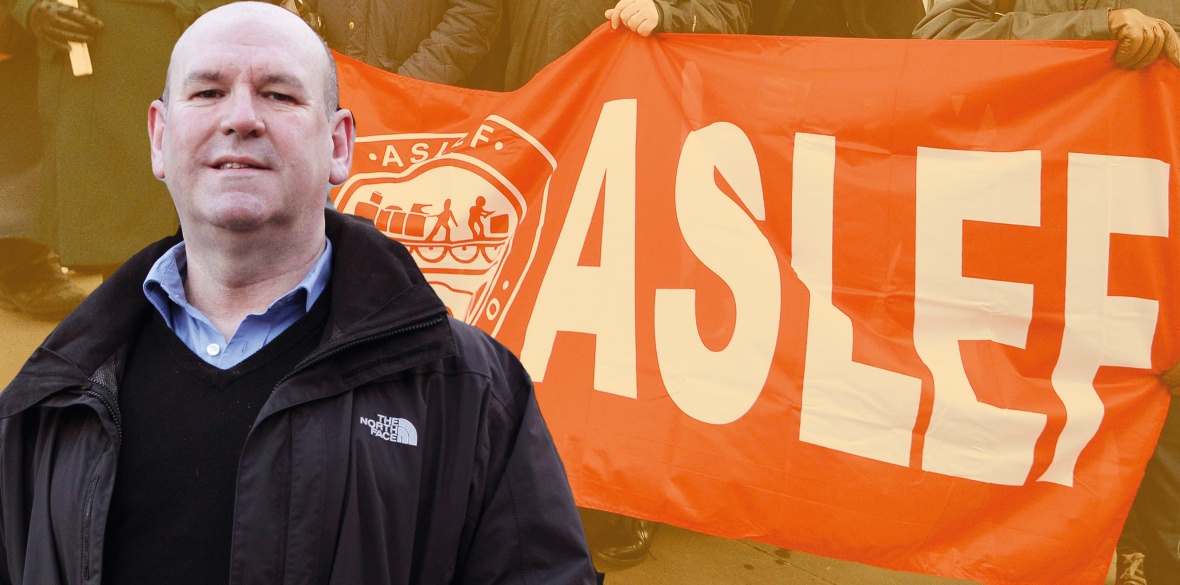This is the last article you can read this month
You can read more article this month
You can read more articles this month
Sorry your limit is up for this month
Reset on:
Please help support the Morning Star by subscribing here
ASLEF is taking two motions to the 153rd Trades Union Congress which will be held, virtually and online this year, from Sunday 12 to Tuesday September 14.
One is on rail, climate and the post-pandemic recovery; and the other about using public procurement to create and protect high-quality jobs here in Britain.
While the coronavirus crisis has, quite rightly, been the focus for governments around the world over the last two years, the climate change crisis has not gone away.
Public transport use collapsed during the pandemic, as people were told to stay at home.
The financial cost of the pandemic cannot — and will not — be met by yet more failed austerity measures, but by growing our economy, in a way that not only does not exacerbate the climate crisis, but reduces carbon emissions here on planet Earth.
Rail, including rail freight, which results in 76 per cent lower emissions than an equivalent road journey, is an essential part of a green economy.
That’s why we are calling on the general council to campaign for more rail investment, not cuts; for investment in low-carbon transport for a green economy; and to campaign for the safe return of passengers to public transport.
We will also be arguing that one of the strongest levers available to the public sector is decisions about procurement of goods and services.
Public bodies — from the NHS to local councils to central government — procure a range of goods and services every day.
The rules and guidelines governing these processes are an important way to ensure that high-quality jobs are protected in Britain and that goods and services used here are also made here.
Ensuring that goods and services procured by the public sector are produced in Britain will also benefit efforts to tackle the climate crisis, as shorter supply chains mean fewer carbon emissions.
Alongside this, using more carbon-efficient infrastructure, such as rail freight, can have an even more significant impact on the amount of carbon expended.
Strong procurement rules and guidelines can also be a way to stipulate that companies receiving public money must operate to a high standard of workers’ rights and employment conditions, and recognise a trade union.
We believe that the government must work to protect British goods and jobs in order to ensure there is fair and high-quality employment for all.
That’s why my fellow delegates — AGS Simon Weller, EC vice-president Andy Hudd, Bristol branch secretary Bernard Kennedy, and Lesley Atkins-Smith — will be asking Congress to call on the general council to lobby the government, at the highest levels, to develop procurement policies that ensure goods are produced in Britain and services create British jobs; and to work with regional and local trades unionists to lobby other public-sector organisations for the same high-quality procurement rules.
I have no doubt that Congress will be receptive this week. But that’s when the hard work begins. Because I am not convinced that this Tory government does believe in Britain — by which I mean that goods and services used here should also be made here.









